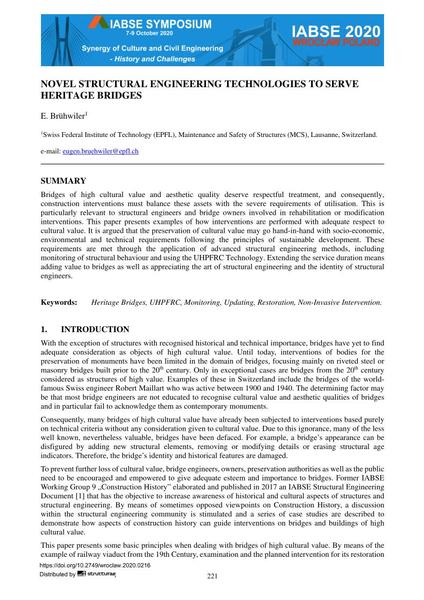Novel Structural Engineering Technologies to Serve Heritage Bridges

|
|
|||||||||||
Détails bibliographiques
| Auteur(s): |
E. Brühwiler
|
||||
|---|---|---|---|---|---|
| Médium: | papier de conférence | ||||
| Langue(s): | anglais | ||||
| Conférence: | IABSE Symposium: Synergy of Culture and Civil Engineering – History and Challenges, Wrocław, Poland, 7-9 October 2020 | ||||
| Publié dans: | IABSE Symposium Wroclaw 2020 | ||||
|
|||||
| Page(s): | 221-228 | ||||
| Nombre total de pages (du PDF): | 8 | ||||
| Année: | 2020 | ||||
| DOI: | 10.2749/wroclaw.2020.0216 | ||||
| Abstrait: |
Bridges of high cultural value and aesthetic quality deserve respectful treatment, and consequently, construction interventions must balance these assets with the severe requirements of utilisation. This is particularly relevant to structural engineers and bridge owners involved in rehabilitation or modification interventions. This paper presents examples of how interventions are performed with adequate respect to cultural value. It is argued that the preservation of cultural value may go hand-in-hand with socio-economic, environmental and technical requirements following the principles of sustainable development. These requirements are met through the application of advanced structural engineering methods, including monitoring of structural behaviour and using the UHPFRC Technology. Extending the service duration means adding value to bridges as well as appreciating the art of structural engineering and the identity of structural engineers. |
||||
